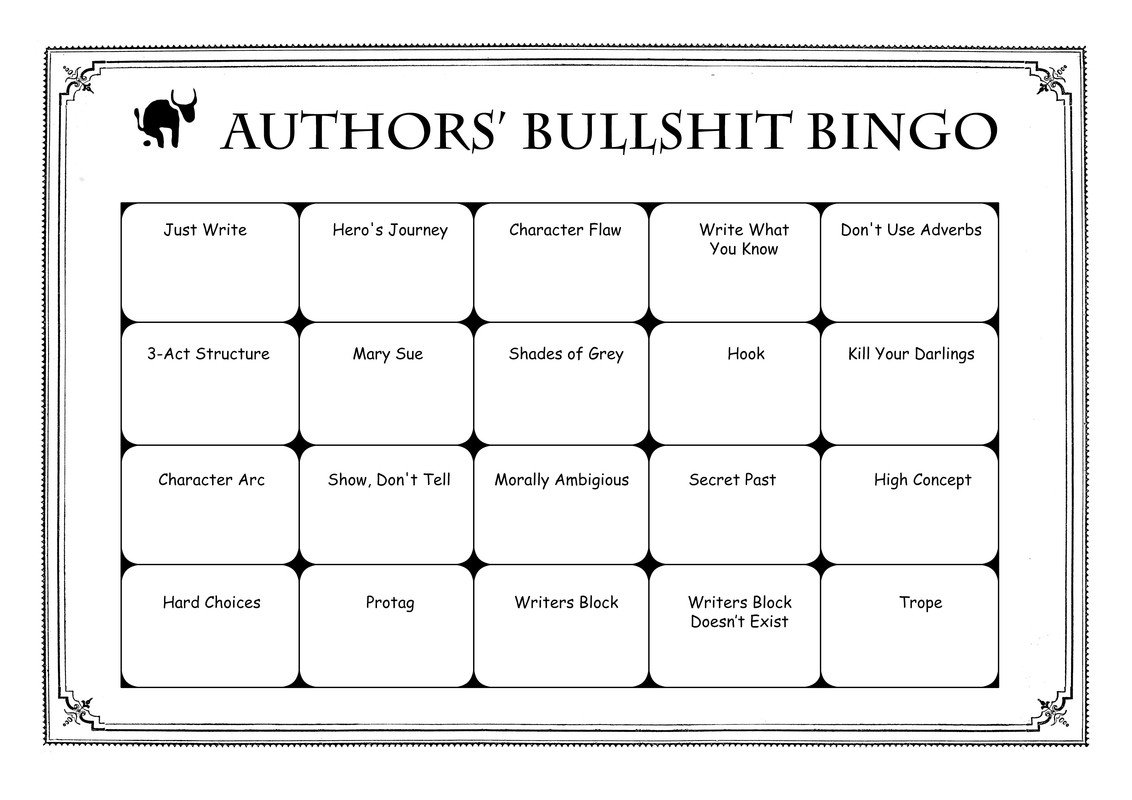Kasper Hviid
 Sage
Sage
A lot of what's being written by writers about writing seems strangely innocent of writing skill; it's the same tired stock phrases going on repeat, stale and lifeless. Whatever merits it may have is being overshadowed by the dominant smell. To get this out of my system, I created this Bullshit Bingo page with some of those which annoys me personally!
By the way, if you want to replace certain entries, I used Comic Sans MS for the font.

By the way, if you want to replace certain entries, I used Comic Sans MS for the font.


 Dreamer
Dreamer
 Maester
Maester Vala
Vala